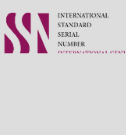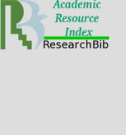3065-923X
Editorial Policies
Details of Journal
|
Title: |
Chronicles of biomedical sciences |
|
Title abbreviation: |
Chron Biomed Sci |
|
Title other(s): |
CBS |
|
ISSN: |
|
|
Medium: |
Online |
|
Language: |
English |
|
Access: |
Open-access |
|
Website: |
Publishing schedule
CBS aims to publish one Volume comprising four quarterly Issues in a calendar year. Based on a continuous publishing or rolling publication model, the final and complete version of an article will be published online, and articles will be added to the contents list of an "issue in progress" as soon as they are ready.
Archiving, Copyright and Licensing
CBS currently stores all its digital content including articles on OJS which is accessible to the readers. The copy of the same content is kept as a backup on two other sources. For long-term archiving and preservation, CBS plans to archive its digital data with PMC and LOCKSS.
Authors retain the copyright to their articles; therefore, they can self-archive their published articles on their personal websites, and institutional repositories. CBS allows the authors to submit Version of Record (VoR) of their articles to any repository of their choice. A VoR is the final, published version of a journal article after it has been: peer reviewed, edited, typeset, and assigned to a volume or issue of a journal.
CBS exercises CC BY Non-Commercial (CC BY-NC) https://creativecommons.org/licenses/by-nc/4.0/ license that enables reusers to distribute, remix, adapt, and build upon the material in any medium or format for noncommercial purposes only, and only so long as attribution is given to the creator.
Publication ethics and related editorial policies
CBS editorial practices the policies, standards and guidelines set by the Committee on Publication Ethics (COPE), the Directory of Open Access Journals (DOAJ), the Open Access Scholarly Publishing Association (OASPA), and the World Association of Medical Editors (WAME) for transparency and best practice in scholarly publishing. If an anomaly arises, adhering to the COPE guidelines will serve as a standard.
Research Ethics Approval
All studies (including retrospective studies and case reports) involving human or animal subjects, their data or biological material should seek prior approval (or waiver along with reasons) from the appropriate institutional and/or national research ethics committee(s), and describe this in the methods including name of committee, date of approval, and declare that the study was performed in accordance with the ethical standards as laid down in the 1964 Declaration of Helsinki and its later amendments or comparable ethical standards.
Studies involving human subjects must be approved by the institutional ethics committee. The methodology section of the study should mention this approval. Studies should also include a statement about voluntary participation and informed consent.
Studies involving animal subjects must be approved by the institutional ethics committee for animal subjects. The methodology section of the study should mention this approval. Authors should also indicate whether the institutional and national guidelines for the care and use of laboratory animals were followed.
Informed Consent
Informed consent should be taken from all volunteers and/or their legal guardians. Identifying details should not be published in written descriptions, photographs, or pedigrees unless the information is essential for scientific purposes. Consent must be obtained for all case reports, clinical pictures, and adverse drug reactions. The consent form should be written in the methodology section of the manuscript and made available at the editor's request.
Clinical Trial Registration
The authors must register prospective clinical trials (phase II to IV trials) in suitable publicly available repositories. The trial registration number (TRN) and date of registration should be described in the methods. For clinical trials registered retrospectively, the TRN, date of registration and the words 'retrospectively registered’ should be described in the methods. Purely observational trials will not require registration.
Authorship and contributorship
All those who meet all four criteria for authorship by the International Committee of Medical Journal Editors (ICMJE) should be identified as authors; and all those who do not meet the authorship criteria should be acknowledged.
The criteria are,
(1) Substantial contributions to the conception or design of the work; or the acquisition, analysis, or interpretation of data for the work; AND
(2) Drafting the work or reviewing it critically for important intellectual content; AND
(3) Final approval of the version to be published; AND
(4) Agreement to be accountable for all aspects of the work in ensuring that questions related to the accuracy or integrity of any part of the work are appropriately investigated and resolved.
The examples of activities that alone do not qualify a contributor for authorship are acquisition of funding; general supervision of a research group or general administrative support; and writing assistance, technical editing, language editing, and proofreading. Because acknowledgment may imply endorsement by acknowledged individuals of a study’s data and conclusions, the corresponding author must obtain written permission to be acknowledged from all acknowledged individuals.
The authors should disclose whether they used artificial intelligence (AI) assisted technologies in the production of submitted work. For example, if AI was used for writing assistance, describe this in the acknowledgment section, and If used for data collection, analysis, or figure generation, describe this use in the methods.
In addition, all authors should be able to identify which co-authors are responsible for specific parts of the work, and should have confidence in the integrity of the contributions of their co-authors.
All authors are responsible for the quality, accuracy, and ethics of the work, but one corresponding author must be identified who will reply if questions arise or more information is needed, and who will take responsibility for the work as a whole.
Disclosure of Financial and Non-Financial Relationships and Activities, and Conflicts of Interest
Conflicts of Interest (COI) exists when a participant (author, peer reviewer, or editor) has a competing interest (financial ties, academic commitments, personal relationships, political or religious beliefs, and institutional affiliations, etc.) that could influence his/her responsibilities (academic honesty, unbiased conduct and reporting of research, and integrity of decisions or judgments) in the publication process (submission of manuscripts, peer review, and editorial decisions).
Authors should avoid entering into agreements with study sponsors, both for-profit and non-profit, that interfere with authors’ access to all of the study’s data or that interfere with their ability to analyze and interpret the data and to prepare and publish manuscripts independently when and where they choose. Policies that dictate where authors may publish their work violate this principle of academic freedom. Authors may be required to provide the journal with the agreements in confidence.
An author’s complete disclosure demonstrates a commitment to transparency and helps to maintain trust in the scientific process. When authors submit a manuscript of any type or format they are responsible for disclosing all relationships and activities that might bias or be seen to bias their work.
All participants in the peer-review and publication process—not only authors but also peer reviewers, editors, and editorial board members of journals—must consider and disclose their relationships and activities when fulfilling their roles in the process of article review and publication.
All declarations about COI should be requested in writing as a condition of reviewing a manuscript and asked in such a way that authors will have a high likelihood of reporting their COIs related to the manuscript.
Reviewers, at the time they are asked to critique a manuscript, must disclose to editors any relationships or activities that could bias their opinions of the manuscript, and should recuse themselves from reviewing specific manuscripts if the potential for bias exists. Reviewers must not use knowledge of the work they’re reviewing before its publication to further their own interests.
Editors and editorial staff members should recuse themselves from editorial decisions if they have relationships or activities that pose potential conflicts related to articles under consideration.
Data Sharing
CBS encourages authors to make the data and materials supporting the results or analyses presented in their research paper publicly available information.
Peer-Review
All submissions for publication will get a preliminary review for journal’s scope, suitability and completeness for peer-review. An eligible Editor will be assigned to accomplish at least two independent peer-reviewed reports. In light of preliminary and peer-reviewed reports, the Editors will make a free decision about the submission. Any submission not meeting the standards for publication will be rejected and the authors will be informed accordingly.
Plagiarism
All submissions for publication will get a plagiarism check before peer-review by using plagiarism detection software i.e. “Turnitin”. A submission having similarity index <15% will be considered for peer-review, 15-20% will be sent back for revisions, and >20% will be rejected permanently.
Corrections
Authors can request a correction at any time after their article has been accepted. The corresponding author will contact the Editor to submit a corrigendum or addendum including reference of original article, description of error and how it affects the original article's results, match the original article's author list, and include an author comment if a new author is added.
All corrections (erratum, corrigendum or addendum) will undergo peer-review process as a new submission. The standard APC will be applied to corrigendum and addendum.
Withdrawal and Retraction
CBS allows the authors to withdraw their submitted articles before publication at any point and does not charge an APC.
In case of scientific misconduct such as fabrication, falsification, plagiarism, improper authorship, misrepresenting credentials, failure to disclose COI, improper handling of human or animal subjects, deceptive statistical or analytical manipulations, and improper reporting of results, a serious action including retraction, bans, and informing institutions will be observed.
Beside scientific misconduct, unreliable findings due to experimental errors or miscalculations, use of unauthorized materials or data, redundant publication, copyright infringement, serious legal issue (e.g. libel, privacy), compromised or manipulated peer-review process, and failure to disclose major competing interest will also result in the retraction, bans, and/or informing institutions.
In case of article retraction due to author error or misconduct, APCs will not be refunded.
Advertising
CBS does not accept advertising for products or services that could: Affect editorial decisions, Harm health, Contradict ethics or law, Misleading and Damage the journal's reputation.
Appeals/Complaints
Authors can appeal a rejection or complaint about editorial process to the editor-in-chief at [email protected].
References
Committee on Publication Ethics (COPE). Principles of transparency and best practice in scholarly publishing [Internet]. 2014 [cited 2024 Dec 4]. Available from: https://doi.org/10.24318/cope.2019.1.12.
Creative Commons (CC). About CC Licenses [Internet]. 2019 [cited 2024 Dec 4]. Available from: https://creativecommons.org/share-your-work/cclicenses/.
International Committee of Medical Journal Editors (ICMJE). Roles and responsibilities of authors, contributors, reviewers, editors, publishers, and owners [Internet]. 2024 [cited 2024 Dec 4]. Available from: https://www.icmje.org/recommendations/browse/roles-and-responsibilities/.
Springer Nature. Editorial policies [Internet]. 2023 [cited 2024 Dec 4]. Available from: https://www.springer.com/gp/editorial-policies.
World Association of Medical Editors (WAME). Conflict of interest in peer-reviewed medical journals [Internet]. 2009. [cited 2024 Dec 4]. Available from: https://wame.org/conflict-of-interest-in-peer-reviewed-medical-journals.



